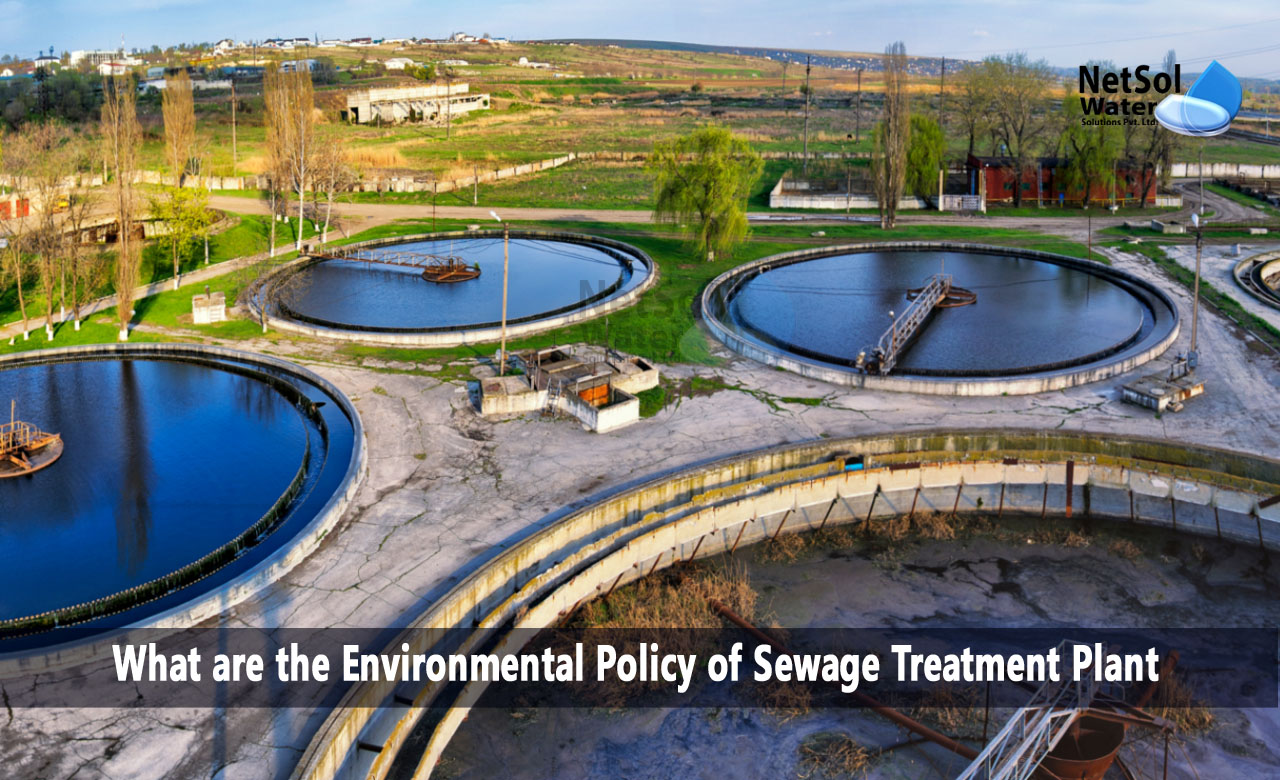What are the Environmental Policy of Sewage Treatment Plant?
Sewage treatment plants (STPs) play a crucial role in maintaining the health of our ecosystems and protecting public health by treating wastewater before its safe release into the environment. To ensure effective wastewater management, regulatory frameworks and environmental policies are established to govern the operation, design, and compliance of these treatment facilities.
In this blog post, we will explore the significance of environmental policies in the context of sewage treatment plants, and how they contribute to sustainable wastewater management and environmental protection.
The Need for Environmental Policies in Sewage Treatment
Sewage treatment plants are responsible for treating and removing contaminants from domestic and industrial wastewater. The wastewater entering these facilities contains various pollutants such as organic matter, nutrients, heavy metals, and microorganisms. If not adequately treated, these pollutants can have detrimental effects on aquatic ecosystems, contribute to water pollution, and pose risks to public health.
Environmental policies related to sewage treatment plants aim to address these concerns by setting standards, guidelines, and regulations for the design, operation, and maintenance of these facilities. They provide a regulatory framework to ensure compliance, promote sustainable practices, and protect the environment and public health.
Regulatory Frameworks for Sewage Treatment Plants
- Water Quality Standards: Environmental policies establish water quality standards that define the acceptable limits for various pollutants in treated wastewater. These standards are often based on scientific research and assessments of ecological and human health impacts. Compliance with these standards ensures that the discharged effluent does not harm receiving water bodies or endanger public health.
- Effluent Standards and Discharge Permits: Effluent standards specify the maximum allowable concentration of pollutants in the treated wastewater before it is discharged. Regulatory agencies issue discharge permits to STPs, which outline the conditions and limitations for discharging effluent into the environment. Compliance with these permits is essential to prevent unauthorized discharge and ensure the protection of water resources.
- Monitoring and Reporting: Environmental policies mandate regular monitoring and reporting of wastewater treatment processes and effluent quality. STPs are required to measure and report parameters such as biochemical oxygen demand (BOD), total suspended solids (TSS), nitrogen, and phosphorus levels. This monitoring ensures that the treatment processes are functioning effectively and enables authorities to assess compliance with effluent standards.
- Environmental Impact Assessments: For the construction or expansion of sewage treatment plants, environmental impact assessments are conducted to evaluate the potential environmental, social, and health impacts. These assessments help identify and mitigate any adverse effects associated with the facility and ensure sustainable development.
Compliance and Enforcement
Compliance with environmental policies and regulatory frameworks is vital for sewage treatment plants to operate responsibly and sustainably. Regular inspections, audits, and enforcement mechanisms are in place to ensure adherence to the established standards and regulations.
Non-compliance can result in penalties, fines, and legal consequences for the facility operators. Additionally, public awareness and engagement in environmental policy implementation can contribute to holding STPs accountable and encouraging compliance.
The Role of Innovation in Compliance
Innovative technologies and practices play a significant role in helping sewage treatment plants meet regulatory requirements and achieve compliance. Advancements in treatment processes, such as enhanced nutrient removal, membrane filtration, disinfection technologies, and resource recovery, can assist in achieving higher treatment efficiencies and improving effluent quality. These innovations contribute to sustainable wastewater management and align with the objectives of environmental policies.
Conclusion
Environmental policies and regulatory frameworks are essential in governing sewage treatment plants and ensuring sustainable wastewater management. By setting standards, establishing effluent regulations, and implementing monitoring and compliance mechanisms, these policies play a pivotal role in safeguarding water resources, protecting ecosystems, and promoting public health.
Sewage treatment plants must embrace these policies and strive for compliance through innovation, continuous improvement, and a commitment to environmental stewardship. By adhering to regulatory frameworks, STPs contribute to a cleaner environment, sustainable water management, and a healthier future for communities and ecosystems alike.




